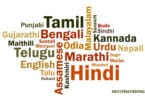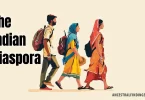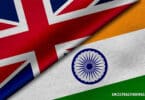Tracing Indian ancestry can be a rewarding but complex task, especially given the diversity of the country and its many sources of historical records. The key to success lies in using the right tools and resources to piece together the past. Whether you’re researching family roots in rural villages or tracing connections across oceans, today’s blend of digital and traditional resources offers a range of options to help you uncover your family’s story.
Online Databases: The Gateway to Indian Genealogy
The internet has made genealogical research more accessible than ever. Several major online databases can provide valuable records for Indian ancestry research.
FamilySearch.org: One of the most comprehensive free resources for genealogical research, FamilySearch has a growing collection of Indian records, including civil registrations, church records, and migration lists. You can access census data, birth and marriage records, and even some land documents.
Ancestry.com: This website has a large database of records related to Indian ancestry, particularly for families connected to the British colonial period. This includes military service records, passenger lists, and government documents.
MyHeritage: Offers another growing collection of Indian genealogical resources, focusing on family trees, historical documents, and migration records.
These platforms allow users to search for specific names, dates, or locations, often providing digital copies of historical documents. As they expand their Indian collections, these sites become go-to tools for genealogists looking to trace Indian roots.
Government Archives: The Powerhouses of Historical Records
While online databases are great starting points, physical records often hold the most comprehensive details. India’s vast government archives are goldmines for researchers, especially those tracing ancestry from the colonial era.
The National Archives of India: Located in New Delhi, this is the largest archive in the country and holds a staggering number of records from the British Raj period, including land records, census data, court documents, and military records. This is a key resource if your ancestors were involved in government work or owned land during British rule.
State Archives: Each state in India maintains its own archives, often containing regional records like birth and death certificates, property documents, and regional censuses. For example, the Tamil Nadu State Archives or the Maharashtra State Archives may have genealogical records specific to those areas.
The British Library (India Office Records): The India Office Records at the British Library in London are essential for families with connections to British colonial India. These records cover everything from official government correspondence to personal letters, wills, and probate documents, often providing rich details about life during British rule.
Religious Institutions: A Key to Unlocking Ancestry
India’s religious diversity means that temples, churches, mosques, and gurdwaras have been crucial in recording family histories. Many families’ ties to religious institutions span generations, and these places often maintain detailed records of births, marriages, and deaths.
Temples and Hindu Genealogical Records: In many Hindu communities, especially among Brahmins, temple priests have long-maintained records of families, including detailed family trees. This practice is especially prevalent in South India, where temples like the Madurai Meenakshi Temple hold centuries of family records.
Churches and Christian Genealogical Records: Christian families in India, particularly those with ties to British or Portuguese missionaries, can often find baptism, marriage, and death records in church archives. Goa’s churches, for instance, have a wealth of genealogical data dating back to the Portuguese colonial period.
Mosques and Islamic Records: Many mosques, particularly in Muslim-majority regions, keep records of marriages and deaths. For example, mosques in Hyderabad and Lucknow have documented centuries of family history.
Gurdwaras and Sikh Family Records: Sikh families often have ties to specific gurdwaras where religious leaders maintain records of significant life events. Some larger institutions, like the Golden Temple in Amritsar, have records stretching back to the founding of Sikhism.
Local Histories and Community Libraries
Local historians and community libraries can be great resources for a more personal touch. Many local histories, often written by village elders or community leaders, contain valuable information about the families in that area. These records might not be digitized, but visiting local libraries or talking to community historians can yield unexpected finds.
Specialized Research Centers
Certain regions of India have specialized research centers dedicated to preserving genealogical information:
The Kerala Council for Historical Research: Located in Kerala, this institution specializes in South Indian history and maintains an archive of family histories related to the region’s famous matrilineal system.
The Asiatic Society of Mumbai: This center focuses on preserving historical documents related to Mumbai and the surrounding region, making it a vital stop for genealogists researching families with ties to Maharashtra.
The French Institute of Pondicherry: For those with ties to the former French colony, the French Institute in Pondicherry offers a unique collection of colonial records, particularly those related to trade, migration, and religious conversion.
Navigating Language Barriers in Indian Records
One of the greatest challenges for researchers is the language barrier. Historical documents written in numerous languages—Hindi, Tamil, Urdu, Bengali, and many others—can be difficult to navigate.
Luckily, many online tools and translators are available to assist. For example, Google Translate can help with basic translations, though professional services are recommended for more complex documents. Additionally, some archives offer translation services or have multilingual staff available to help researchers.
A Wealth of Resources at Your Fingertips
Whether you’re searching through digital databases, government archives, or religious institutions, the resources available for tracing Indian ancestry are vast. By combining online tools with visits to physical archives, genealogists can uncover rich, detailed histories that bring their family stories to life. While the process can be challenging, especially when dealing with language barriers and fragmented records, the reward is a deeper understanding of where you come from and the legacy your ancestors have left behind.






